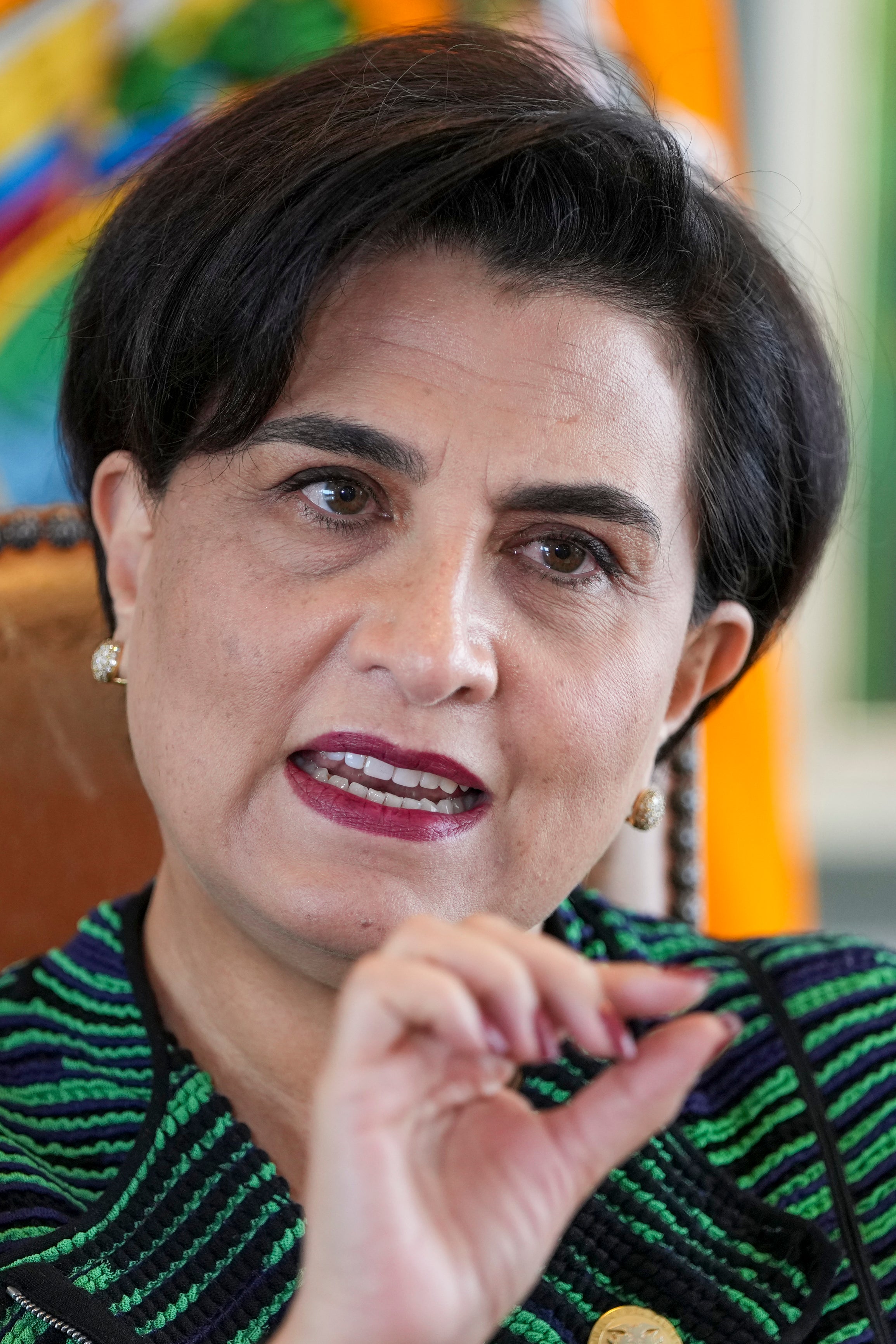Almost 2 months after embassy raid, Ecuador is 'ready' to talk with Mexico and reach solution
It's been almost two months since police raided the Mexican embassy in Ecuador's capital

Your support helps us to tell the story
From reproductive rights to climate change to Big Tech, The Independent is on the ground when the story is developing. Whether it's investigating the financials of Elon Musk's pro-Trump PAC or producing our latest documentary, 'The A Word', which shines a light on the American women fighting for reproductive rights, we know how important it is to parse out the facts from the messaging.
At such a critical moment in US history, we need reporters on the ground. Your donation allows us to keep sending journalists to speak to both sides of the story.
The Independent is trusted by Americans across the entire political spectrum. And unlike many other quality news outlets, we choose not to lock Americans out of our reporting and analysis with paywalls. We believe quality journalism should be available to everyone, paid for by those who can afford it.
Your support makes all the difference.Almost two months after police raided the Mexican embassy in Ecuador, the South American country’s government wants to re-establish communication with officials in Mexico and reach a solution to the diplomatic rift that followed the extraordinarily unusual use of force.
Ecuadorian Foreign Minister Gabriela Sommerfeld, in an interview with The Associated Press on Tuesday, said her country is “ready” for dialogue with Mexican officials with the only nonnegotiable matter being the release from prison of Ecuador’s former Vice President Jorge Glas, who was the target of the April 5 raid.
Glas had been granted political asylum hours before police broke into the embassy in the capital, Quito, found him in a bedroom and dragged him out.
Sommerfeld said Ecuador already accepted Mexico’s request for a third country to “help as a diplomatic communication channel,” but she declined to identify the nation. A day earlier, Mexican Foreign Minister Alicia Bárcena told a radio station the third country will “most likely” be Switzerland.
The raid, which drew immediate condemnation from governments around the world against Ecuador, prompted the feuding nations to file complaints against each other with the International Court of Justice.
Diplomatic premises are considered foreign soil and “inviolable” under the Vienna treaties and host country law enforcement agencies are not allowed to enter without permission from the ambassador.
Glas, who was convicted in two corruption cases, had lived at the diplomatic compound since mid-December while on parole. Days after Mexico’s Foreign Relations Secretariat announced he had shown up at the embassy and asked for “entry and safeguard,” a judge revoked his parole and ordered him to serve out the remaining of his sentence, totaling two years and 11 months.
Ecuadorian President Daniel Noboa ordered authorities to raid the embassy, a move he defended as necessary “to protect national security.” His government has argued Glas was wanted for his criminal convictions, not political reasons, and has accused Mexico of violating the Vienna treaties by granting him asylum.
Meanwhile, the government of Mexican President Andres Manuel Lopez Obrador has conditioned any rapprochement on the release of Glas, who is being held at a maximum-security prison at the port city of Guayaquil.
Mexico closed its embassy and two consulates immediately after the raid. Bárcena said the third country that will assist the feuding nations “is going to safeguard” Mexico's embassy and ambassador's residency and facilitate moving the belongings of 18 officials.
Sommerfeld said trade between the two countries continues and so is the “attention to the citizens of both countries,” which is been facilitated by other embassies and international organizations.
Asked about the sustained migration of Ecuadorians to the United States, she acknowledged that “there has been a strong increase” in migration in the last three years, which she attributed primarily to lack of jobs and safety.
Sommerfeld said officials estimate that about 2.4 million Ecuadorians live outside their home country. That figure represents more than 10% of the country’s population.
Official records show that just over 123,000 Ecuadorians did not return from their trips abroad last year. During the same period, Sommerfeld said, around 120,000 Ecuadorians were detained at the border between the U.S and Mexico.
Noboa’s government “is trying to fix the root problems: We need security, employment and study,” she said.